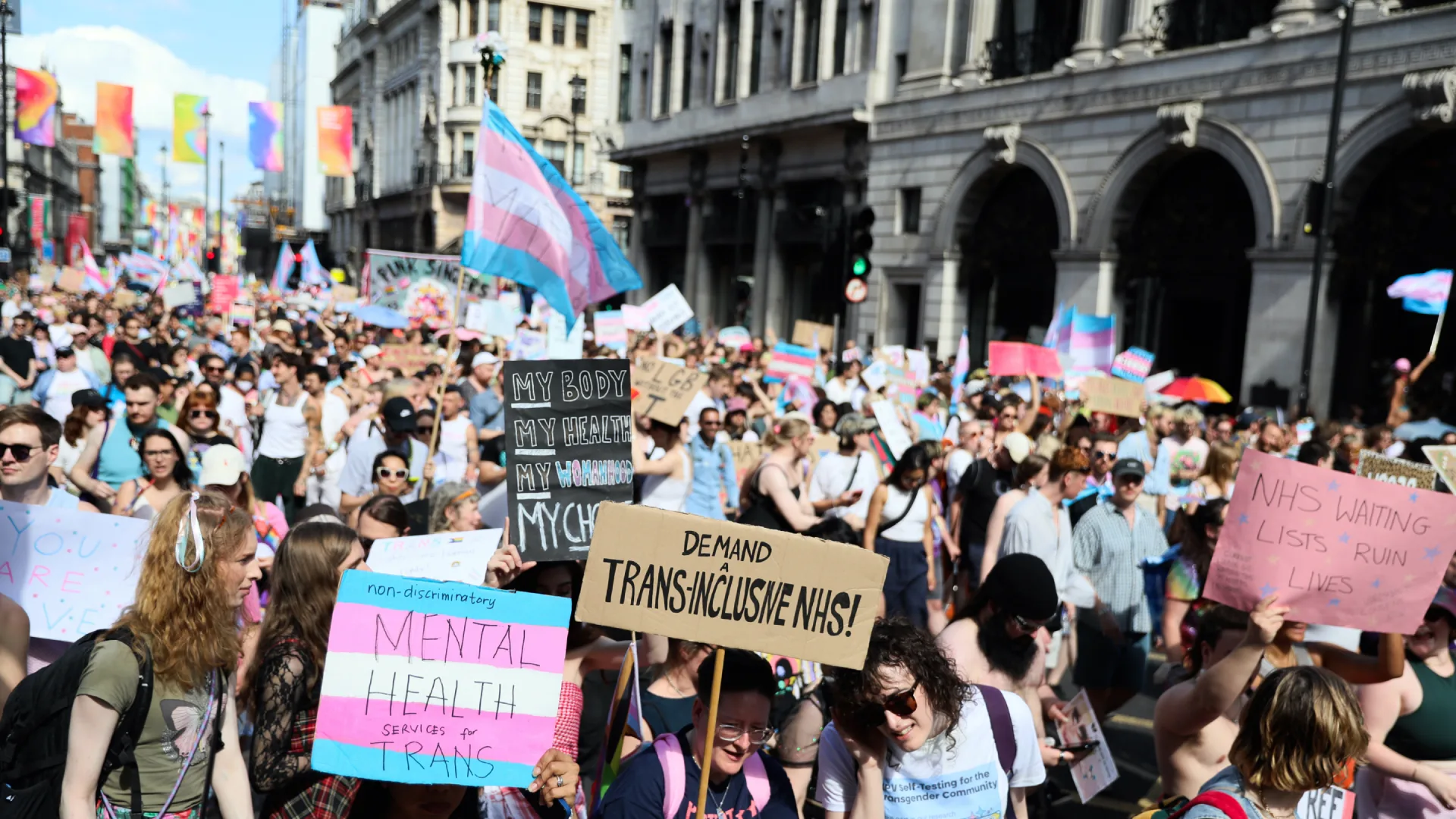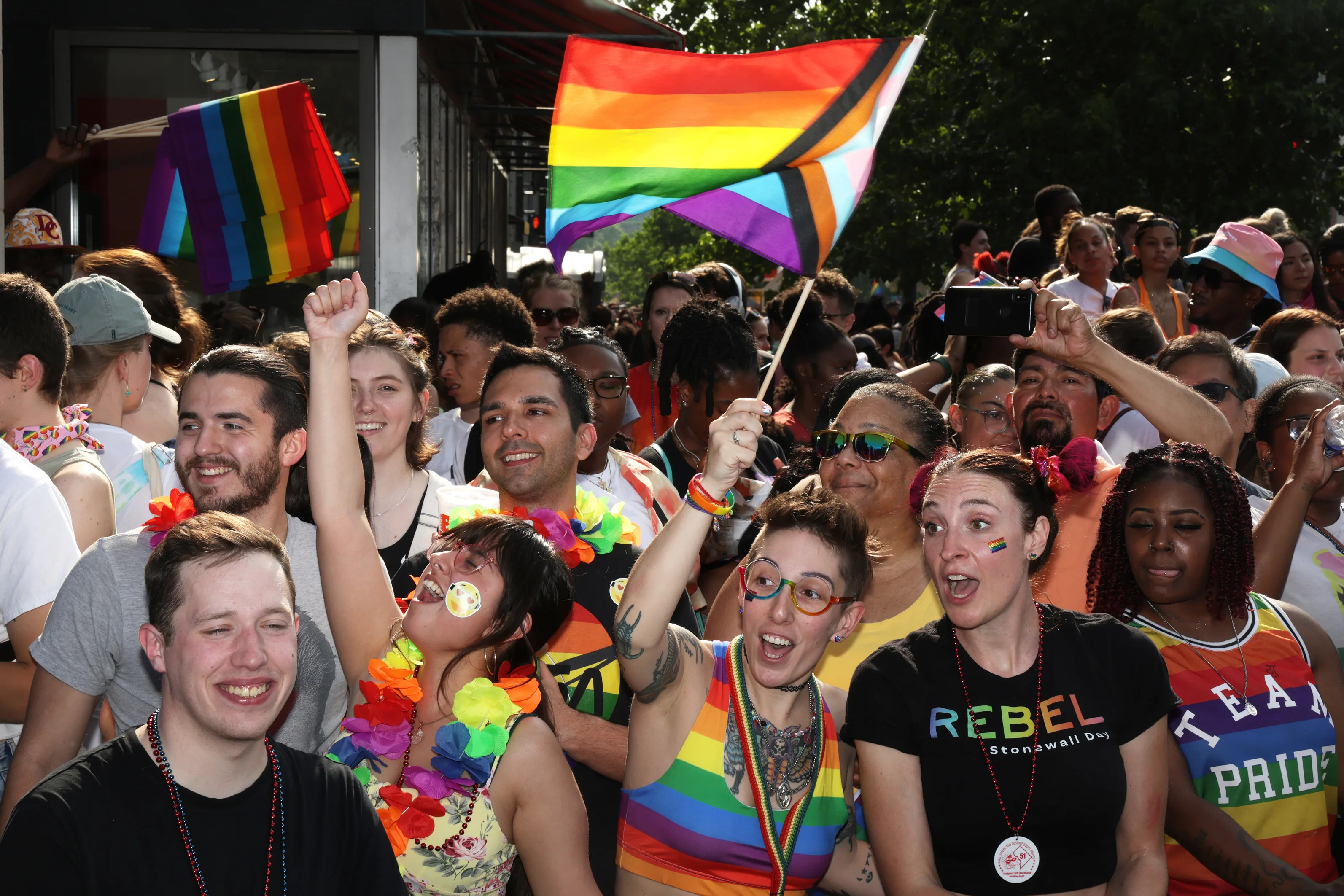The UK Supreme Court today (16 April) delivered its landmark verdict that a woman should be defined by “biological sex” in the Equality Act, leaving LGBTQ+ rights campaigners deeply concerned over the ramifications this could have for Trans people. Despite anti-Trans campaigners claiming this as a victory, Supreme Court judge Lord Hodge warned that the judgement is not “a triumph” for one side or the other, not least because Trans people are still unequivocally protected by the Equality Act when it comes to discrimination.
The impact of the case, which was brought against the Scottish government by For Women Scotland, a group with financial support from JK Rowling that has repeatedly claimed giving trans people further rights will “erode” those of women, will only become clear with time – though there will undoubtedly be real-world implications.
What Did The Judges Say?
Lord Hodge said the “unanimous decision” of the Supreme Court is that the concept of sex is binary, and the terms “sex”, “man” and “woman” in the Equality Act refer to “biological sex”. It added that any other interpretation would make the law “incoherent and impracticable”, even if someone has a Gender Recognition Certificate (GRC).
In the 88-page ruling, justices said: “We can identify no good reason why the legislature should have intended that sex-based rights and protections under the EA 2010 should apply to these complex, heterogenous groupings, rather than to the distinct group of, biological, women and girls, or men and boys, with their shared biology leading to shared disadvantage and discrimination faced by them as a distinct group.”
What Impact Could The Ruling Have On Trans People In The UK?
Scottish Trans, an Edinburgh-based charity, has urged the community “not to panic” as various groups will “deliberately overstate” what today’s ruling means. Trans people are still protected from discrimination and harassment under the Equality Act, which the ruling has no impact on.
However, it is expected to affect how Trans people use single-sex spaces and services across the UK, mainly due to the implication it has on how sex and gender will be viewed in law. In effect, it gives more ‘legitimacy’ to those wishing to exclude Trans people, as the ruling essentially challenges how the Equality Act has been interpreted for the last 15 years, i.e. in that trans women are women. It also undermines the Gender Recognition Act, which exists to give legal recognition to a trans person’s gender. “This ruling sets a dangerous precedent and erases trans women from protections. It puts trans rights back 20 years,” the Good Law Project wrote on X (formerly Twitter).
The wider implication is that it galvanises calls to amend the Equality Act, especially from prominent anti-Trans campaigners. The judgement will likely be used to press the government on other policies and guidance related to gender, though how much it will bow to such pressure remains to be seen. In a statement, it said the ruling “brings clarity and confidence, for women and service providers such as hospitals, refuges, and sports clubs”. Labour still remains fully committed to a trans-inclusive ban on so-called ‘conversion therapy’, and legislation is expected to arrive in the coming months, though it quietly shelved plans to simplify the gender recognition process earlier this year.
Are Trans Women Still Protected By The Equality Act?
The answer is an unequivocal yes. The ruling does not change the Equality Act, rather updates how certain terms are defined. In its judgement, the Supreme Court was clear that its interpretation does not remove any discrimination protections from Trans people, whether they have a Gender Recognition Certificate or not. Judges also said that Trans women can still legally claim sex discrimination if they face it.
Is There Anything I Can Do?
Yes. Much of what happens next is contingent on pressure from various groups, partially because anti-Trans groups will move to lobby the government on how they implement policy, guidance and so forth – which many have already vowed to do.
By visiting www.members.parliament.uk/FindYourMP, you can find out who your local representative is, as well as their contact information. Write to them to let them know how you feel, as well as how it will impact your life.
Also keep in mind that LGBTQ+ charities need our support more than ever, and many offer a number of services and resources that can help you cope during difficult times. Some you might consider turning to include Switchboard, Gendered Intelligence and Not a Phase.












